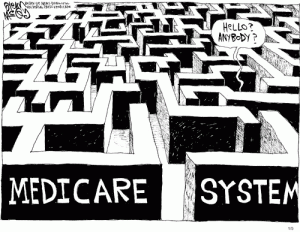Fans of Shark Tank know that the blunt talk of a shark can be bruising, but it’s often fraught with a wise truth.
By Jack Cumming
Can a Shark Be a Good Thing?
Carl Icahn is a shark. So is Tom Sandell. The public face of business sharks is what you see on TVs Shark Tank. Not all sharks see the world through the same lens. But what they have in common is an abhorrence of complacency and conventionality. They also talk about money. Behind that monetary façade, though, is a realization that increasing the monetary value of an enterprise is not greed; it’s simply a measure of success in meeting human needs. Profit is a necessity and a success measure; it’s never the purpose for a business.
Unique Tax Exemption
As a general concept, businesses are expected to be self-supporting while charities depend on philanthropy . . . an exception to that concept is made for tax-exempt senior housing enterprises. This circumstance, unique to senior housing, is made possible by IRS Revenue Ruling 72-124 which declares it to be a “charitable” activity to operate “a home for the aged” if it satisfies the need of aged persons for housing, healthcare, and financial security. Although such tax-exempt businesses can’t distribute profits as dividends, they can accumulate profits as retained earnings and can, with restrictions, pay compensation commensurate with profitability.
Shark Attack
A top-flight “shark” like Carl Icahn is highly intelligent, highly analytical, and committed to lean operations. For business enterprises, that are accountable to “at-risk equity investors,” the “shark” looks at the business to uncover waste, lost opportunities, or mistaken managerial judgments. These opportunities to improve the business generally develop when business leaders decline into drift, inaction, or complacency. Tax-exempt enterprises lack a tradable ownership which limits shark-like accountability allowing executives to be lulled into a false sense that all’s well.
Sharking Senior Housing
Few corporate leaders have the stomach to “shark” their own operations and their own management performance. This is particularly true when it comes to tax-exempt organizations. Moreover, sharks can have limited vision. Recently, for instance, corporate analysts (and sharks) have viewed senior living principally as a real estate business, ignoring, for the most part, the potentialities inherent in the operations. Still, LCS®, to cite but one example has built an attractive business by specializing primarily in operations.
The value that a shark can bring to a business is an unadorned critical eye that forces attention on challenges that may lie hidden from the corner office. Sharks can be investors (as is commonly thought) or probing outside consultants, or simply the utterances of ordinary people with the courage to articulate constructive criticism. Such critics should be welcomed for their good intentions. As Amazon’s Jeff Bezos has said, “When you are criticized, first look in the mirror and decide. Are the critics right? If they are right, change. If they are not, then don’t change.” That takes a strong commitment to objective reality.
It’s All About the Customer
Anyone who’s ever started a business from scratch remembers the first customer. Without a customer, there’s no business. Customer value and business success both require minimization of expenses and optimization of revenue consistent with market conditions. This standard differs from the charitable model, so optimal organizations rarely combine charitable undertakings with business operations.
You likely have your own principles. Every business and every manager is unique. We all benefit from encounters with others who test our principles and who bring us new insights. It’s when we’re most complacent about our efforts that we can gain the maximum from looking at those efforts through the eyes of a shark. Fans of Shark Tank know that the blunt talk of a shark can be bruising, but it’s often fraught with a wise truth.
Beginning with Frederick Taylor (of “Cheaper by the Dozen” fame), scientific management has been a force with new manifestations for every generation. One recalls Kaizen (continuous improvement), Six Sigma (insistence on Deming performance standards), not to mention a steady stream of management books which have their day and then fade. Sharks look beyond mere theory to address the human potentialities for improvement which dwell within every business organization – talent, threats, focus, pace, value – to help enterprises to better serve our world.








